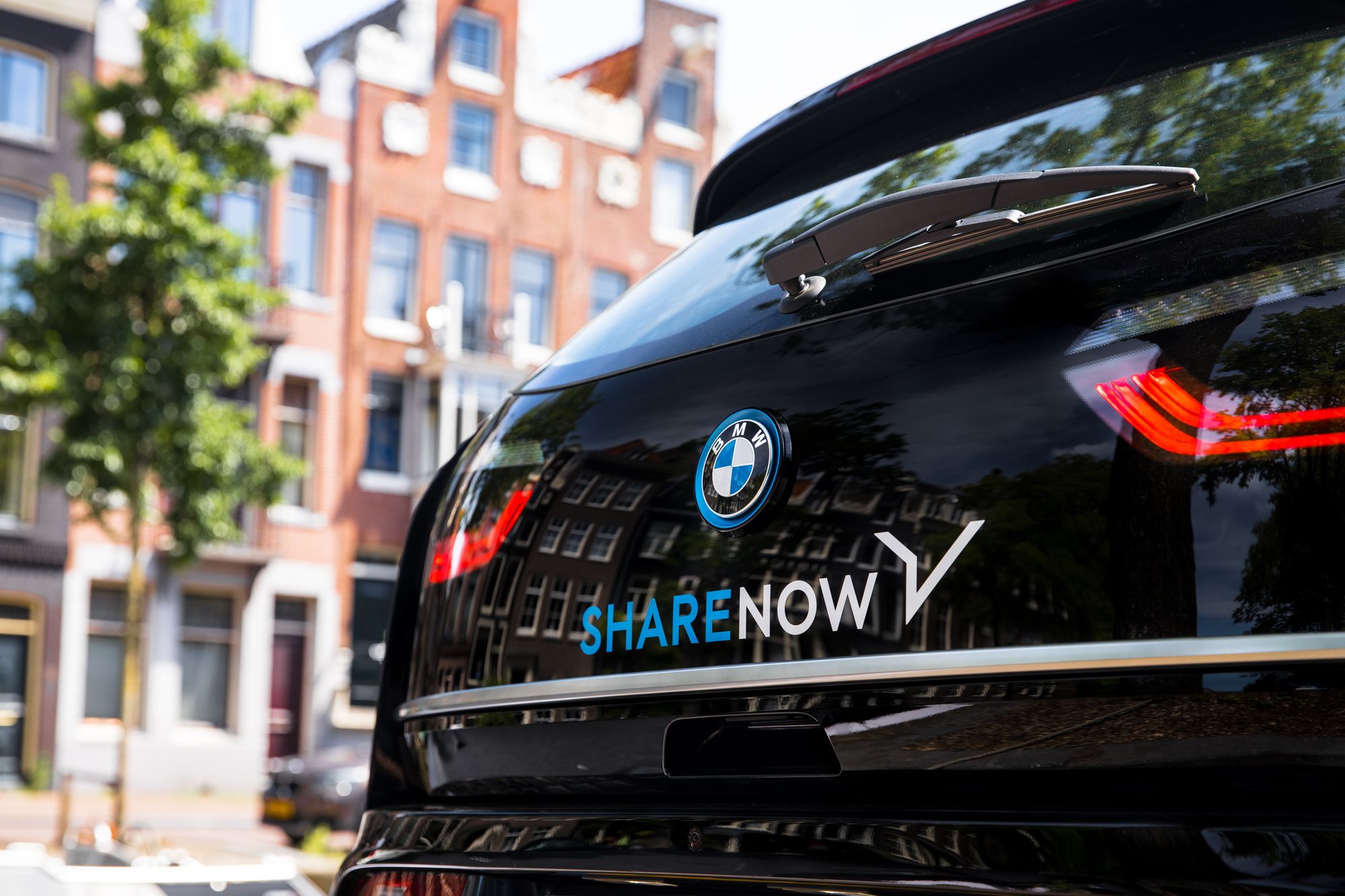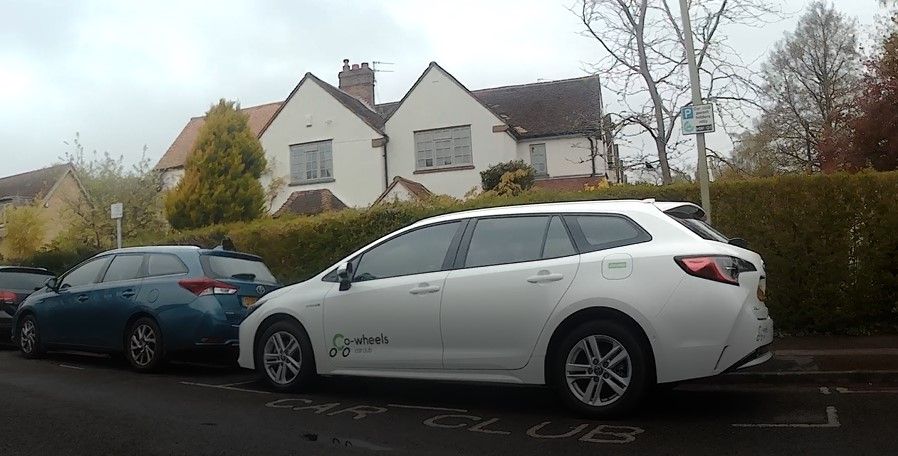Car-sharing: the end of a monogamous relationship
Headington resident Charles Young talks through the pros and cons of serving the divorce papers on his car in favour of joining a car club, while Hannah Kirby outlines how the scheme works.

For the last eight years, my wife and I have not owned a car. We made the change when we had become empty-nesters, and decided to move from our four-bedroom house with ample parking space to a smaller one in a more central location, closer to the amenities we expected to need in our declining years – shops, restaurants and buses, doctors, hospitals and funeral parlours. Parking space is scarce in such locations, so we decided to join a car club.
The background to the decision was that I had spent the previous 15 years doing research on the automotive industry, and had been struck by the wastefulness of car ownership. The average car in the UK drives about 7,400 miles per year, which at an average speed of around 25 mph means that it is standing idle for around 96.5% of its life, doing nothing except depreciating (typically at around 1% per month) and taking up expensive space (your expense if it is a garage, public expense if it is a street). The obstacles to car-sharing were substantial before we had the Internet of Things, but now it is simple to book a car online, and for the car to “know” when you booked it, how many miles you have driven and how long you had it for. The cost varies from around £4.75 per hour plus £0.18 per mile for a small car, to £7.25 and £0.20 for a seven-seater. Electric cars cost £5.50 per hour, with no mileage charge.
The average car in the UK drives about 7,400 miles per year, which at an average speed of around 25 mph means that it is standing idle for around 96.5% of its life.
There are a couple of cars available within a few minutes’ walk from our house – if they are both in use when we want one, we may have to walk further. There are six in Headington and three more around Divinity Road – it is rare not to be able to find one available, even when making a last-minute booking. But not owning a car does mean changes in one’s attitude to driving. Here are the positive ones:
- You no longer have a monogamous relationship with one car – you can choose whichever one is most suitable for your current purpose (there is also a van if you need to move furniture or take things to the dump).
- Maintaining, cleaning, insuring and taxing the thing is someone else’s worry.
- If you drive less than 5,000 miles per year, you will probably save money, and/or drive a better, newer car (the car club ones are mainly either electric or hybrid).
And here are the negative ones:
- When you book a car, you commit yourself to bringing it back at the specified time. You can try to prolong the booking once it has started (either by going online, or by using the device inside the car, or by making a phone call), but if someone else has meanwhile booked it, you must bring it back.
- Correspondingly, once in a while the person who had it before you fails to bring it back – you will have to make a phone call and make your way to an alternative car. This happens rarely, but when it does it is of course just as infuriating as when a privately owned car fails to start.
- Individual trips can seem very expensive – if you are a car owner, you have already committed yourself to the heavy annual costs of insurance, depreciation and maintenance, so the marginal cost of each individual trip is little more than the fuel, even though the average cost is much higher.
Because of the last point, we use cars much less than when we owned one. Initially we used our old pushbikes more, but with advancing age we both found it harder to cope with Headington Hill, and I had difficulty in (don’t misunderstand me) getting my leg over. So we both now have step-through electric bikes, which have opened up new possibilities. Journeys which would have been exhausting even when we were 30 years younger are now pleasurable. And surprisingly large amounts of shopping can be carried. They cost about £1,500 to £2,000 each to buy new, but running costs are negligible.
I hope you’ll give serious consideration to giving the virtuous circle a turn, doing the green thing, and serving divorce papers against the machine that’s costing you £100 a month or more just by rusting away in the street.
The more people there are who rely on car-sharing in a given area, the more cars will be available, and the more attractive it will be to join in. I must confess that it is taking longer than I expected for this change to come about, and for the thousands of little-used, ageing vehicles to start disappearing from our clogged-up streets. Reader, I hope you will give serious consideration to giving the virtuous circle a turn, doing the green thing, and serving divorce papers against the machine that’s costing you £100 a month or more just by rusting away in the street.
Co-Wheels: car-sharing in Headington, Oxford and all over the UK
If you’re thinking you’d like to go car-free but are worried about the occasional journeys which just can’t be made by bike, bus, taxi or train, Headington is well-served by Co-Wheels, a pay-as-you-go car hire scheme. Hannah Kirby gives us the low-down...

We’ve been making use of Co-Wheels since we ditched our family car last year and would encourage others to try it out to see if it works for them.
You’ve probably seen them dotted around on your travels, in parking bays in the following locations (as at August 2021):
- Oxford Brookes University car park on Gipsy Lane (Toyota Yaris Hybrid)
- All Saints Road (near the bottom of Latimer Road) (Toyota Corolla Estate)
- St Leonards Road (in the car park) (Toyota Corolla Estate)
- York Road (near Margaret Road) (Toyota Corolla Estate Hybrid)
- Quarry Road (near Mark Road) (Mini One Classic 2)
- Palmer Road (Wood Farm) (Toyota Yaris Hybrid)
The way it works is:
- You become a member of the Co-Wheels car club online and receive a smartcard that you use to access Co-Wheels cars.
- When you want to use a car, you search on the Co-Wheels website for an available car and book it.
- At your booking time, you pick up the car from its parking bay, using the key card to access the car.
- When you’ve finished using the car, you drop it back at the same parking bay you picked it up from.
You can book the cars for periods of anything from half an hour to days at a time. Payment is by the hour, and that covers tax, insurance, petrol bills and all other costs.
A key difference from traditional car rental companies is that Co-Wheels cars are available 24/7 on-street, with no need to pick up and return keys during the rental company’s office hours and no minimum rental periods or restrictions on the days you can collect/return the car.
Most of the cars are hybrid or electric, causing less environmental and health damage than petrol or diesel cars – meaning that you get to drive a ‘cleaner’ car than you might be able to afford to buy.
Because Co-Wheels is nationwide, it’s also possible to use the cars in other UK towns and cities you travel to by train or bus for holidays, family visits or work trips etc.
We’ve found going car-free to be financially and mentally liberating – saving significant amounts of money and no longer having to worry about MOTs, servicing, insurance, finding a parking space, things going wrong with the car and general driving-induced stress.
Obviously, this option isn’t available to everyone due to personal circumstances such as caring responsibilities, disability and work journeys that are difficult or impossible by public transport or active travel. But for people who are thinking about going car-free, car clubs like Co-Wheels might just be the thing that makes it possible.
See the Co-Wheels website for further information.
Title image by SHARE NOW on Unsplash; Co-Wheels image by Hannah Kirby
